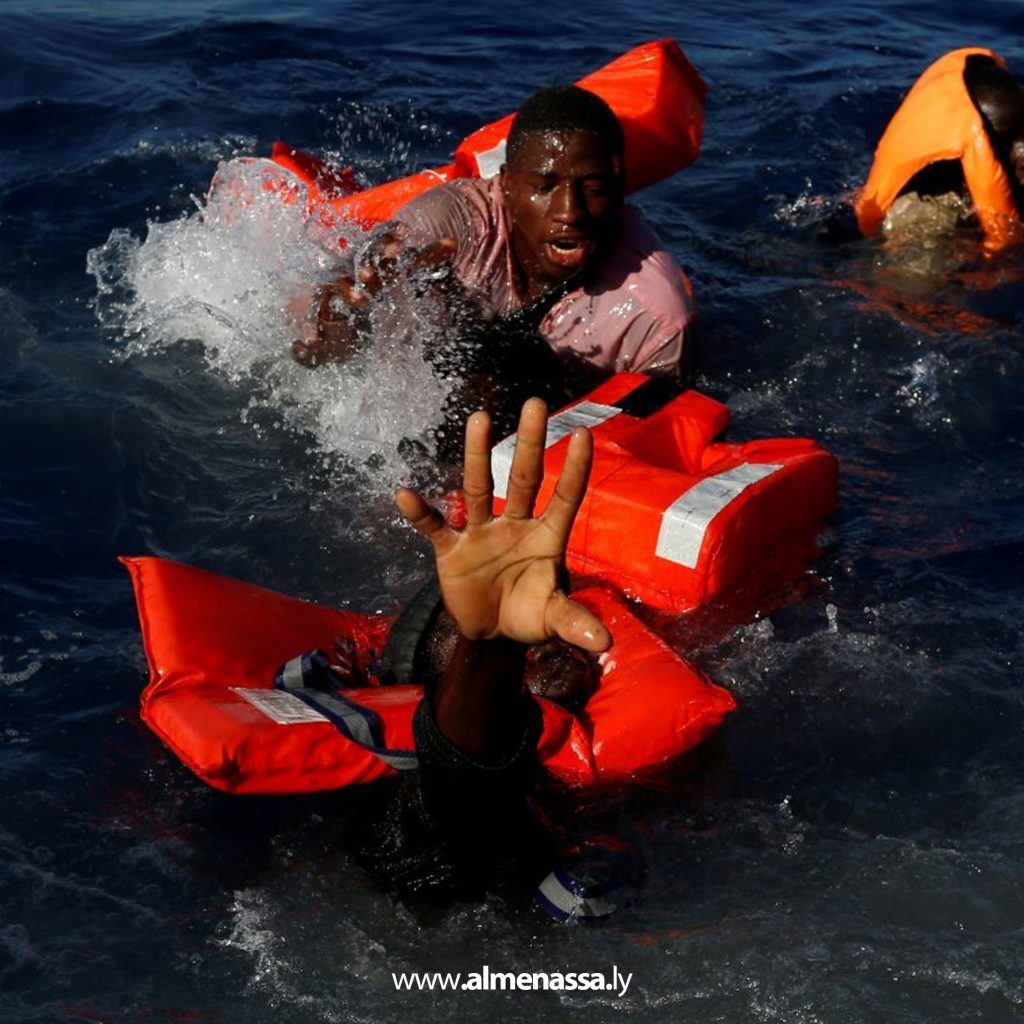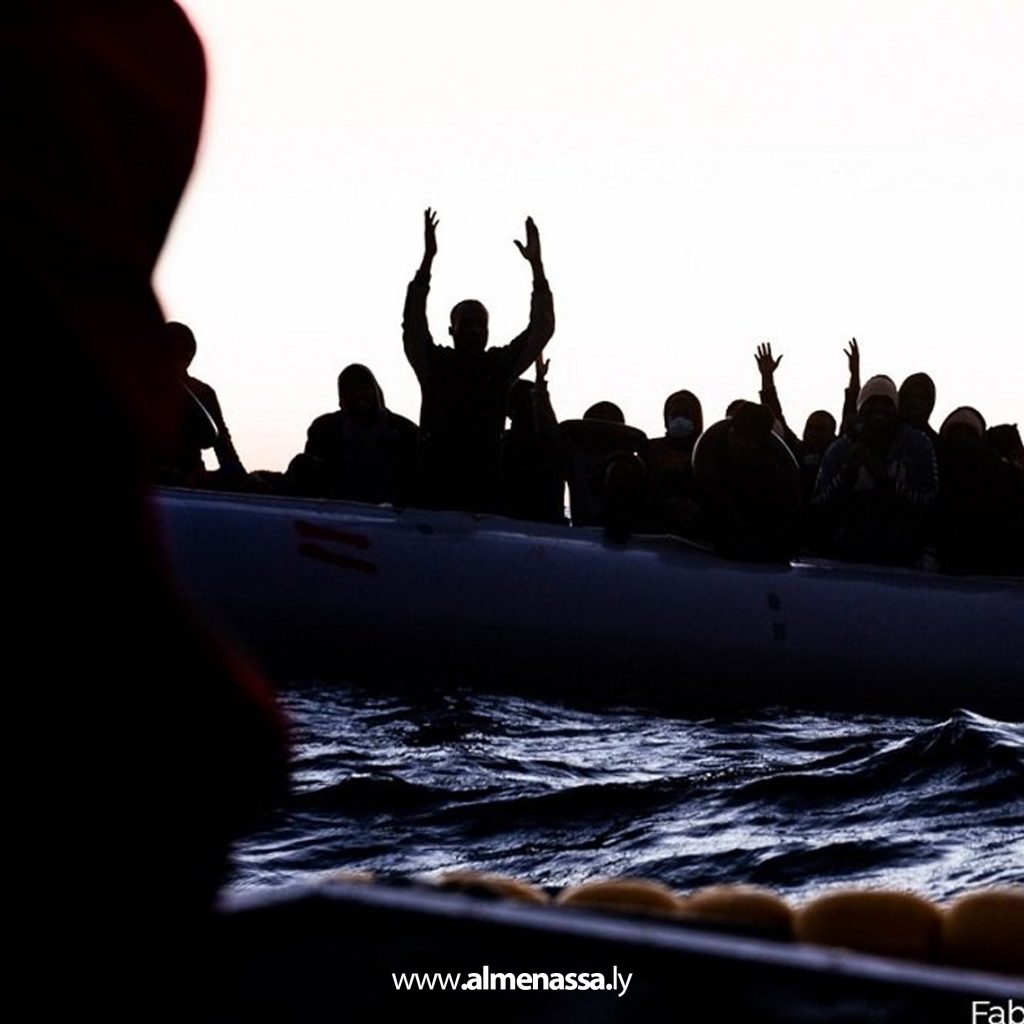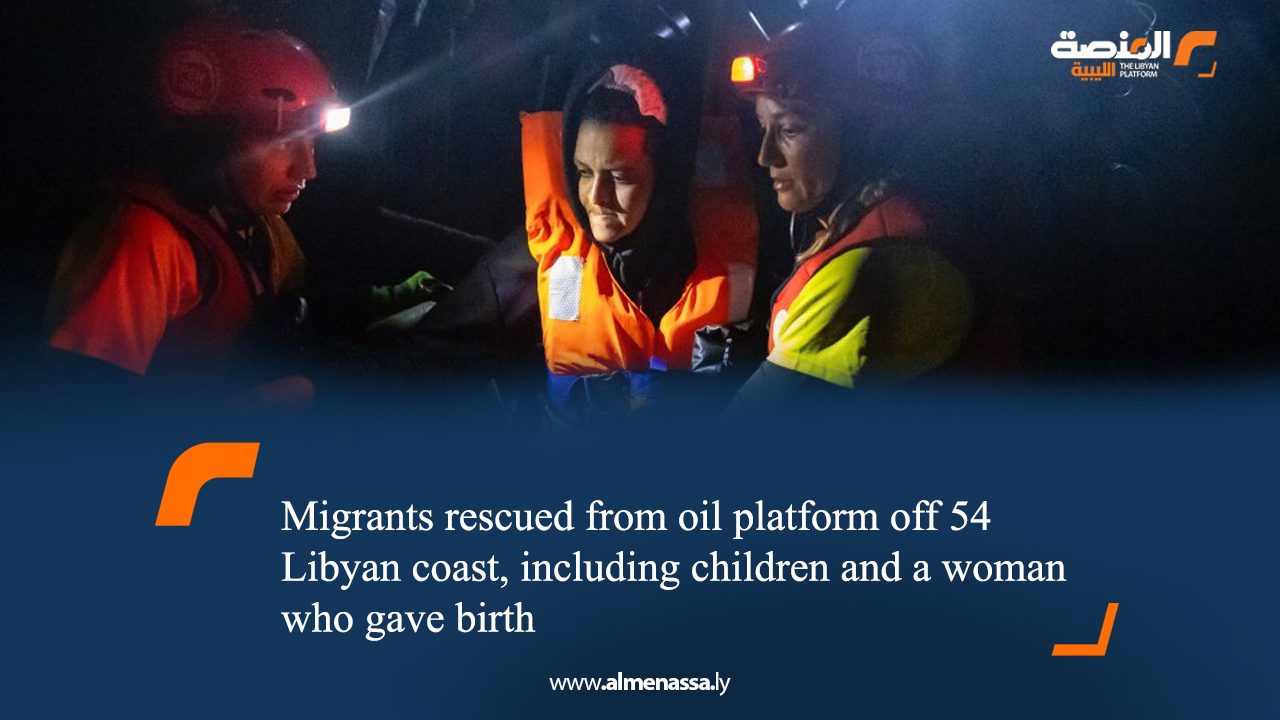The Spanish non-governmental organization Open Arms rescued 54 migrants overnight from Saturday to Sunday (June 7-8) who had been stranded for three days on an oil platform in the central Mediterranean, off the Libyan coast. The group included several children and a woman who had recently given birth, in one of the most complex humanitarian rescue operations recently.
According to a statement issued by the organization, the migrants were aboard a rubber boat that departed Libya on Tuesday before it sank, forcing them to seek shelter on the oil platform in harsh weather conditions. A video released by Open Arms showed extreme panic and fear among the survivors, especially with strong winds blowing during the night.
The organization confirmed that a woman gave birth on Friday on the platform, while another had given birth a few days earlier, and two other young children were also among the group.
In a separate rescue operation, Open Arms reported that its vessel “Astral” found 109 other migrants, including four who were in the water, after they sailed from Libya. Life jackets were provided to them until the rescue vessel “Louise Michel” intervened and transported them to a safe port in Sicily.
It is worth noting that oil and gas platforms in the Mediterranean have recently become emergency refuge points for stranded migrants whose journeys have failed. Last March, 32 migrants were stranded for four days on a gas platform off the coast of Tunisia before being rescued by the “Sea-Watch” organization after Maltese and Italian authorities ignored distress calls.
According to the UNHCR, approximately 23,000 migrants arrived in Italy by sea from the beginning of 2025 until June 1st. Greece also recorded a 174% increase in sea arrivals during the first four months of the year, mostly originating from eastern Libya towards the island of Crete.
The Mediterranean Sea remains one of the most dangerous irregular migration routes in the world. Since 2014, over 25,000 migrants have died in its waters, including women and children, according to international human rights organizations.

False promises and smuggling networks
Almost all migrants on these perilous journeys rely on smuggling networks, run by Libyan or Tunisian smugglers, who promise migrants “guarantees” for fees up to 1,500 euros, including multiple crossing attempts if the first fails.
However, reality belies these promises. SOS Mediterranee states that smugglers lie about everything, from boat quality to the distance between the European shore and the African coasts. Migrants are sometimes deceived by lights they see on the horizon at night, told they are lights from Italy, when they are in fact floating oil platforms.
Satellite phones: fragile hope
Some migrants possess satellite phones, provided by smugglers for extra fees, to use for contacting coast guards or the humanitarian “Alarm Phone” number. However, this method does not guarantee their survival, as these phones often break or get exposed to water, leading to loss of communication.
In March 2024, over 60 migrants, including women and children, died of hunger and thirst on a boat that remained lost at sea for seven days after their only satellite phone malfunctioned.

Death boats
The boats used in these journeys are described as “floating coffins,” in the words of the European border agency Frontex. They are often made of plastic or thin metal sheets, assembled quickly and without safety standards. Survivors say they deflate or break easily, and some capsize minutes after sailing due to overloading.
SOS Mediterranee has documented an increase in the use of metal boats departing from Sfax, Tunisia, since 2023, which are known among migrants as “iron boats.”
Ongoing Tragedy
Since 2014, over 25,000 migrants have died while attempting to cross the Mediterranean Sea, including about 3,500 children who were lost or died, according to a UNICEF report published last April. The Mediterranean, despite all warnings, remains the most dangerous maritime migration route in the world, and its tragedies continue unabated.


